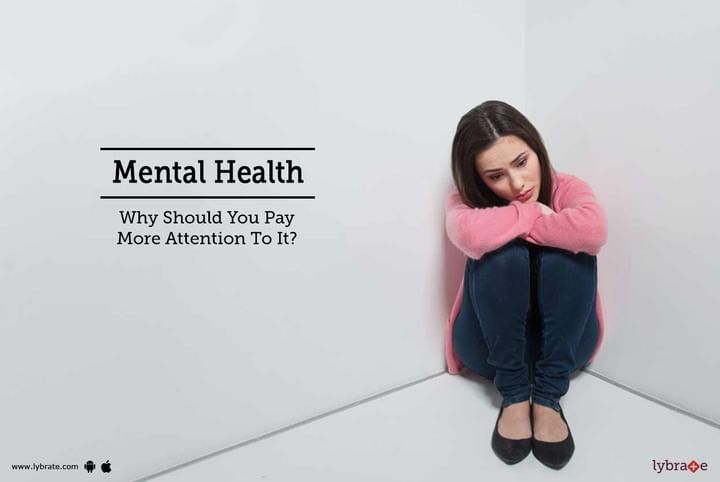Mental Health - Why Should You Pay More Attention To It?
The first question when you greet somebody is 'how are you' and this often refers to our state of well-being. While most answers would be great, awesome or good, we usually think of how we are doing physically. While some of us may talk about physical conditions (say things like feverish, have a cold, etc.), not many would think of talking about mental health conditions. However, mental health is very important for overall well-being.
Can you think of someone who is severely depressed or anxious all the time and have a good physical health? Chances are very bleak, and if you consider the overall health as a mix of mental and physical balance, this is not possible. Read on to understand how important mental health is and why you should start paying more attention to it.
- Improved physical health: If someone is in a stressed state, it is obvious that they would not be able to do the activities they enjoy. Being affected mentally also leads to reduced immunity and sleep disturbances, making the person prone to infections and other disorders. Stress is one of the main risk factors for chronic medical conditions like heart disease and diabetes.
- Improved prognosis: Most often, doctors focus on treating the physical aspects of a person’s health. However, with recent emphasis on mental health, more and more doctors are looking at wholesome measures to improve a person’s health. Results show that when a person’s mental health is also addressed, the physical ailments respond very well.
- Improved productivity: People with unattended mental health disorders often resort to absence from work and/or school, can have financial instability, be homeless and can fall repeatedly. Being mentally healthy provides overall changed perspective of life and therefore improves productivity.
- Improved personal relationships: Children of people affected by mental illness are prone to neglect, abuse, rejection, and behavioural issues. There is also social isolation, which may lead into adulthood, and these children may also have emotional health problems. Others in the close circle including spouses, siblings, parents, close friends and colleagues would be clearly affected by a person who is mentally unhealthy.
- Social effects: These people are highly prone to social crimes like rape, murder, theft, violence, etc. They may not be able to afford their treatment and/or resort to these crimes to assert themselves.
- Improved quality of life: Life expectancy is higher in people who are mentally healthy. Even with mild symptoms of anxiety and depression, this is reduced, and the chances of a happier, healthier life are reduced.
Whatever the effect, mental health needs to be addressed as equally as we do physical problems, using medications, counselling, or lifestyle changes. In case you have a concern or query you can always consult an expert & get answers to your questions!



+1.svg)
